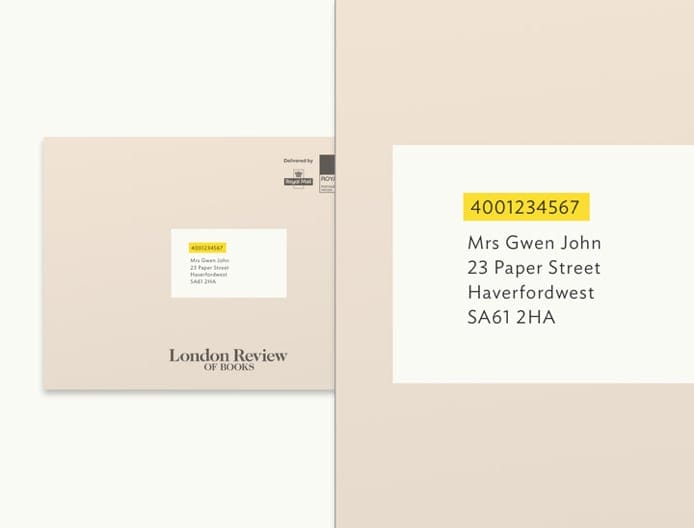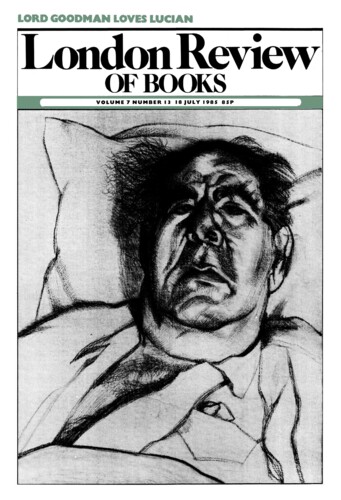Without Richard Norton-Taylor of the Guardian, there would be no Belgrano affair, and doubtless Mr Clive Ponting OBE would be plying his way, ever upwards, in the Ministry of Defence. This is no exaggeration. Simply a statement of fact. I am in a position to know.
However right Paul Rogers, Lee Chadwick, Arthur Gavshon and I may have been, the fact is that without the sustained interest of Guardian readers, and, in my case, the Labour Party up and down the country, there was no way which the professors of Belgrano Studies, as David Frost has christened us, could have carried on. Many a crusade has been smothered by the great big yawn of the British public.
Norton-Taylor is not and never was Tam Dalyell’s or anyone else’s tame journalist. On the contrary, he started by being sceptical of Dalyell, and Dalyell was hostile to Norton-Taylor (though he has yet to break his duck when it comes to complaining about what some journalist has written about him). Norton-Taylor blamed me, with justice, for having scuppered not only Scottish but, more important to him, Welsh devolution. I regarded Norton Taylor as a romantic nationalist – which, as far as I am concerned, is about the lowest rung in the political demonology.
A number of journalists have mastered the intricacies of the Belgrano affair. Julian Haviland, Anthony Bevins and Philip Webster of the Times would all pass with first-class honours any finals examination in Belgrano Studies: but as members of the House of Commons Lobby, they necessarily have to give their attention to every ephemeral political event and could not devote themselves to the intricacies of 30 April-2 May 1982, even if their owner Rupert Murdoch so wished – which he emphatically doesn’t. Peter Riddell of the Financial Times has taken an educated interest, but he is also in the House of Commons Lobby, and you cannot expect Lobby journalists to allow themselves to be perceived as part of a campaign. Paul Foot of the Mirror writes as pungently as anyone in modern journalism, but he has a weekly column to sustain, and Robert Maxwell is by no means as anxious about the fate of the Belgrano as he is about the costs of the Falklands, or the welfare of the Polish Government. Like Mr Foot, John Rentoul of the New Statesman has contributed some crucial articles – turning-points in the affair. David Leigh of the Observer wrote on 6 January 1985, ‘The intercepted Argentine signals were decoded and telexed at the time directly to Navy HQ at Northwood and to Mrs Thatcher’s office at Chequers,’ and has played a significant role in drawing aside the veil of secrecy.
Norton-Taylor was nevertheless unique. Not having the inhibitions of the Lobby journalist, he could pursue the maxim laid down by those legendary figures of his paper, C.P. Scott and A.P. Wadsworth, who told their young men to stick to their stories. At a time when grasshoppering has become the journalistic norm, people on both sides of the Belgrano argument will talk to any journalist who has a corpus of knowledge. It’s all very human. Even men and women, even Admirals of the Fleet, who are cautious or dismissive of journalists in general will almost always succumb to one who asks the right questions, however uncomfortable, since such conversations are infinitely more interesting. Three years after the controversy started, I am still phoned up by journalists, on the instructions of a news editor, saying: ‘Explain about the Belgrano. I’ve been put onto it, and I’ve got a story to do before a 5 p.m. deadline.’ Because Norton-Taylor is on wavelength with all sides of the argument, the dramatis personae will take trouble with him, and even be frank with him. For those who wish to follow the ramifications of Belgrano-Ponting, the Guardian is the paper, and Norton-Taylor the correspondent. It by no means follows, of course, that a superb journalist will write a successful book. Some have written astonishingly bad books. Norton-Taylor is not in this category. His digest of the affair is exceptionally well-written and readable, and fully accessible to those who have not been immersed in Belgran-alia. Such studies will now have to accommodate a Soviet submarine in the vicinity at the time of the sinking, and attentive to survivors. The source for that possibility turned up in the unlikely context of a speaking engagement of mine in the West of Scotland.
Every law library should obtain Norton-Taylor’s account of the trial in Court Number Two at the Old Bailey through which we both sat for 11 extraordinary days, and the final chapter on the implications for Whitehall should be read by every civil servant. Norton-Taylor observes that Michael Heseltine, like the rest of the Government, was stunned, and stung, by the jury’s verdict, and was determined to fight back, to have the last word, and to keep the pressure on Ponting for as long as possible. The result was that, at quite unusually short notice by House of Commons standards, a debate was arranged for 18 February 1985 – exactly a week after the Not Guilty verdict at the Old Bailey, I thought Heseltine’s speech was deeply disgraceful: not for his onslaught on myself, not even because its prime purpose was the furthering of Mr Heseltine’s claim to lead the Conservative Party when Mrs Thatcher goes, but because of his attack on Ponting. If the Secretary of State for Defence wished to say what he said about one of his senior civil servants in that vitriolic manner, he should quite certainly have come along to the Old Bailey himself. The House of Commons was no place to make that speech. The proper place to have made it was Court Number Two, where he would have been open to cross-examination by Bruce Laughland, Ponting’s lawyer. By not doing this, Michael Heseltine has earned himself a black mark in important Conservative circles, where, when it comes to the leadership stakes, it will be taken into account that he did not behave as an officer and a gentleman should by going along to the Old Bailey to face the music. This is a view I have heard from those who neither hold Ponting in high esteem nor share my view of the merits of sinking the Belgrano: how potential leaders behave at awkward moments is, for such people, another matter.
Neither Norton-Taylor nor I are lawyers. I have two choices for the most telling moment of the trial, and he has a third. My first choice is the moment when the glitteringly clever Richard Mottram, Michael Heseltine’s Private Secretary, let it out that somehow the date of detection of the Belgrano given in an earlier draft of Sir John Fieldhouse’s official account of the war in the London Gazette – the account which every commander-in-chief has provided since the Crimean War – had been altered behind the C-in-C’s back. My antennae told me that the jury were wondering how such an extraordinary step could have been taken, and why and by whom. Had the date been altered for ‘security reasons’, they might have supposed that Sir John was as conversant with genuine security requirements as any other man in the kingdom. Confronted on television on that recent and never-to-be-forgotten Sunday morning by David Frost, Mrs Thatcher strove to give the impression that mountains were being made out of molehills in relation to the time and date of the Belgrano’s detection. But this was pivotal to the whole issue of crisis management, which is one of the most important long-term issues raised by the affair. If the time of detection was as much of a molehill as she would have us believe, why go to such inordinate lengths to conceal the truth?
My second moment came when Professor H.W.R. Wade QC – as of the Queen’s Birthday Honours, Sir Henry Wade – was called to the witness box. Now Wade is not only a gentle giant of a man – but one of transparent distinction and complete modesty. It was duly extracted from him that he had been Professor of English Law at Oxford from 1961 until 1976 and that he has since been Rouse Ball Professor of Law at Cambridge, and Master of Caius. In the ensuing exchanges Mr Justice McCowan gave the impression of being unable to conceal his sarcastic impatience. Were the defence trying to teach him law? Since Professor Wade is the author of some of the most important books on English law, the judge’s rudeness seemed uncalled for. My own feeling was that when Professor Wade, somewhat surprised, stepped down from the witness box, the collective mind of the jury decided to say boo to the judge.
For Norton-Taylor, however, the most telling moment – which made it quite explicit that the Government was intent on a political trial – came in the absence of the jury. The judge told Roy Amlot, the prosecution counsel, before the final speeches, that if he, the judge, accepted the prosecution’s narrow definition of the interests of the state, as he was inclined to do, then he had no alternative but to direct the jury to convict. He made it clear he believed that the interests of the state were synonymous with the policies of the government of the day. Norton Taylor records: ‘Amlot quickly told the judge: “I would be very reluctant to seek to persuade you to a direction to convict.” But Mr Justice McCowan replied that, if the evidence was all one way, under his interpretation of the law there was no evidence to justify a finding of not guilty.’ For all present, this was an electrifying moment. Amlot jumped up. ‘I am very reluctant in this of all cases,’ he said in his precise, clear, thoughtful tones, ‘that the judge finishes up by directing the jury to convict.’ Amlot hurriedly wrote a note to the hovering figure of Sir Thomas Hetherington, the Director of Public Prosecutions, who, day after day, most unusually sat behind his counsel. Hetherington left the court, almost certainly, we thought, to get on the phone to Sir Michael Havers, the Attorney-General. Amlot asked for a ten-minute adjournment. The judge left the court. When he returned, Amlot insisted: ‘Even if the ruling’ – on the interpretation of the law – ‘is in our favour, we do not ask for a direction to convict.’ I shall never forget Mr Justice McCowan replying that, after considering certain legal authorities, he had changed his mind.
The judge had earlier rejected the defence argument that the definition of the state should include the country at large, the national interest. He said that, if he allowed that, the jury would have a ‘political debate’. As it turned out, the judge’s summing-up to the jury was a direction to convict in all but name. But the prosecution, the DPP, and whoever Sir Thomas had consulted, did not fancy fuelling the political controversy already surrounding the trial by having a judge publicly instructing the jury to convict. In that respect, they were wise. Had they encouraged the judge to follow his instincts, there would have been lasting bitterness.
I do not accept the groaning petulance of those of my Conservative Parliamentary colleagues who hold that the jury’s decision encapsulated in law a licence to leak. What it did do was to make it very difficult for any government to send a leaker to the Criminal Court. Leakers like Ponting – or for that matter Ralph Wigram, Desmond Morton or Air Commodore Tor Anderson, who gave vital information to Churchill in the Thirties – must be prepared to sacrifice their careers. One result of the jury’s decision in the Ponting case has been that Geoffrey Dennis, the young Foreign Office civil servant, has not been sent to the Old Bailey. What has not been resolved by Parliament, however, is what civil servants who care, like Ponting, about the good name of their service, and the real interests of the Queen in Parliament, are to do in order to register an effective protest when the occasion arises. Post-Ponting, what was Dennis to do? There is still no Select Committee to which a civil servant, asked by ministers to act improperly, can go. Look closely at the substance of what Dennis leaked.
In response to the recent deterioration in the political situation in Chile, in particular the declaration of a state of siege on 6 November, the Secretary of State has called an office meeting to consider policy on our bilateral relations before his departure for Peking on 18 December
... The Chileans would regard an embargo as a major shift of British policy and this in turn could hazard the defence and other co-operation we enjoy over the Falklands. Also relevant here is Chile’s agreement with Argentina over the Beagle Channel: this could, in turn, make it easier for the Chileans to reduce the level of their co-operation with us if they were so tempted.
Co-operation on defence matters over the Falklands with the odious junta of General Pinochet? The House of Commons had been kept in the dark.
Far more serious than civil servants leaking is the less than candid behaviour of ministers chronicled in Norton-Taylor’s book. On 24 July there is due to be published the Majority and – even more engrossingly – the Minority Reports of the Select Committee on Foreign Affairs: these will, in a sense, be a sequel to this book. I hear that the Minority, concerned about the price of Government documents, are making an arrangement with a publisher to publish, at a modest cost, their 116-page report. This is a publishing venture which I do not think has ever before come from a small group of dissenting MPs.
In the wake of the press conference given by Assistant Chief Constable Peter Smith following the completion of his report on the death of Hilda Murrell – a report that none of us is allowed to see – I stick to every word I have written in the London Review of Books about the late Shrewsbury rose-grower. I believe the original source who told me that British Intelligence was involved. To the charge that he should go to the Police I reply: After what Heseltine did to Ponting, can anyone expect a source to go to the Police, who would have to report to Home Office civil servants, who in turn could hardly withhold information from the Home Secretary? Nor is there any reason to suppose that Leon Brittan would behave any better than Michael Heseltine. Judith Cook’s powerfully argued book Who killed Hilda Murrell? makes it clear yet again that the police notion that it was an ‘ordinary burglary’ is simply not credible.
Send Letters To:
The Editor
London Review of Books,
28 Little Russell Street
London, WC1A 2HN
letters@lrb.co.uk
Please include name, address, and a telephone number.



